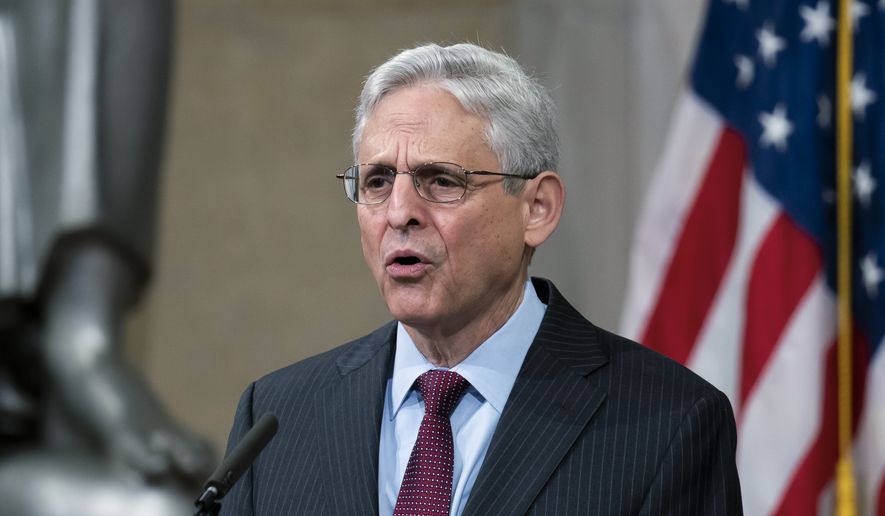More than half of U.S. voters disapprove of Attorney General Merrick B. Garland’s policy directing the FBI to investigate concerned parents at school board meetings, according to a survey released this week by a conservative group.
Convention of States Action, working with the Trafalgar Group polling firm, found that 57% of likely voters who have heard of the policy do not support the attorney general’s call to action in an Oct. 4 memo. Meanwhile, 19% do support it and 23% are unsure.
The poll of 1,079 likely voters was conducted between Oct. 15-18 and had a margin of error of 2.99 percentage points.
Mr. Garland has been under fire in recent weeks from critics who argue the directive is an attempt to silence concerned parents from speaking at school board meetings.
Mark Meckler, president of Convention of States Action, said the results show “those who are aware that Merrick Garland made this announcement oppose him by large majorities.”
“The very idea that our attorney general would direct our nation’s federal law enforcement to investigate everyday moms and dads who are rightly concerned about their children’s education is shocking and hard to fathom,” Mr. Meckler said in a statement on Thursday, adding that “these are the tactics of totalitarians in places like China and North Korea, not here in America.”
Grilled Thursday by Republican lawmakers at a Capitol Hill oversight hearing, Mr. Garland repeatedly told lawmakers that his memo was intended to address threats of violence and actual violence, not free speech. He insisted that the Justice Department “supports and defends the First Amendment rights of parents to complain as vociferously as they wish about the education of their children, about the curriculum taught in schools.”
FBI agents, he said, won’t be attending school board meetings, and that his memo was intended to foster cooperation with state and local law enforcement agencies.
• Emily Zantow can be reached at ezantow@washingtontimes.com.




Please read our comment policy before commenting.